

Who says that Occupy Wall Street – whose national protests so changed the American conversation about economic inequality — was a passing fad? Today, to mark the one-year anniversary of the takeover of Zuccotti Park, where OWS was born, demonstrators gathered in New York’s financial district to sing the movement Happy Birthday – and to get arrested.
Reports the New York Daily News:
“A crowd of about 50 barged into the lobby of the JPMorgan Chase building and demanded to speak to bank officials. About eight of them were arrested.
‘We’re here protesting financial terrorism. The financial mafia,’ said Yates McKee, 32, as he was loaded into the back of a police van.”
And, in the spirit of OWS’s not-for-profit anniversary, author Charles Degelman tells Frying Pan News he is offering Kindle downloads of his 1960s-protest novel, Gages of Eden,
» Read more about: Anniversary Gift: Free Book During "Occupy" Celebrations »
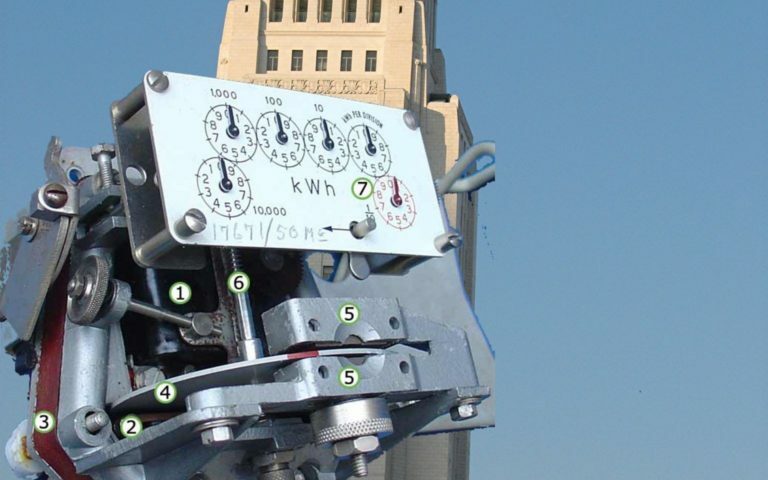
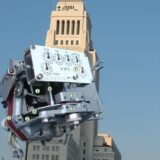
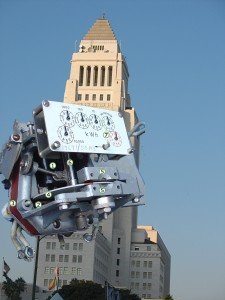 On Monday, September 17, RePower LA will be joined by Los Angeles Mayor Antonio Villaraigosa, City Council members, Los Angeles Department of Water and Power general manager Ron Nichols, and others at the site of a South L.A. home undergoing an energy efficiency upgrade.
On Monday, September 17, RePower LA will be joined by Los Angeles Mayor Antonio Villaraigosa, City Council members, Los Angeles Department of Water and Power general manager Ron Nichols, and others at the site of a South L.A. home undergoing an energy efficiency upgrade.
City leaders are now touting the programs, initially proposed by the RePower LA coalition, which are upgrading small business facilities and the homes of those struggling in the current economy. The customers reduce their energy use and save money, L.A. reduces its reliance on dirty coal-fired power plants, and members of our hardest-hit communities are able to access good career path jobs through the Utility Pre-Craft Trainee program of the International Brotherhood of Electrical Workers, Local 18.
With such win-win-win potential, it is good to see LADWP and city leaders embracing energy efficiency as a central pillar of L.A.’s future.
Writing in a Daily News op-ed,
» Read more about: City Leaders Tout RePower LA's Energy Efficiency Programs »


“Hi. I’m a volunteer with the We Buy Local campaign here in Long Beach.”
So begins the conversation with undecided voters about the Long Beach living wage measure on the November ballot.
Most Long Beach hotel workers live, work and shop in the city. And if the hotel living wage passes, they’ll have more money to put into the Long Beach economy.
More than 100 volunteers and supporters gathered last Saturday to pick up information packets and start knocking on local doors. It was hot in the church classroom where they assembled, but the mood was electric.
More than 140 small business owners are supporting Measure N, as are local religious leaders and city council members Suja Lowenthal and Steve Neal.
College students and retired folks, LGBT activists, Cambodian youth organizers, religious leaders and politicians were all excited to be working together to change conditions for the city’s 2,000 hotel workers and to shake up the political environment in Long Beach.
» Read more about: Living Wages Would Boost Long Beach's Economy »


 Today Frying Pan News launches a series of investigations into Proposition 32, a measure on the November ballot that, if passed, would drastically alter the political landscape in California. “Killing the California Dream” will shed light on Prop. 32’s backers and their motivations; analyze how major public policy decisions would be affected if Prop. 32 passes; and document how corporate money historically has run counter to the interests of most Californians, among other things. The series will run through the November 6 election.
Today Frying Pan News launches a series of investigations into Proposition 32, a measure on the November ballot that, if passed, would drastically alter the political landscape in California. “Killing the California Dream” will shed light on Prop. 32’s backers and their motivations; analyze how major public policy decisions would be affected if Prop. 32 passes; and document how corporate money historically has run counter to the interests of most Californians, among other things. The series will run through the November 6 election.
“If Proposition 32 passes, corporate donations will flat-out dominate politics in California,” said Steven Mikulan, editor of Frying Pan News. “We’ve launched this investigative series to provide California voters with the facts about who is behind the measure and how the passage of Prop. 32 would enable corporations to determine policy on everything from health care, pensions and workplace safety to the environment, education and consumer protection.
» Read more about: Frying Pan News Launches Series on Proposition 32 »
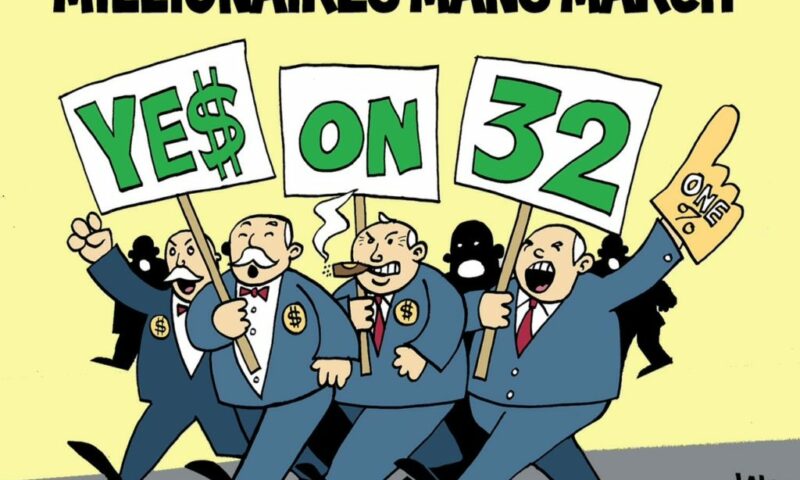
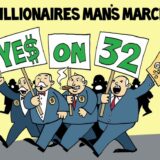
Click image to enlarge.
» Read more about: Lalo Alcaraz: Proposition 32's Grassroots Supporters »
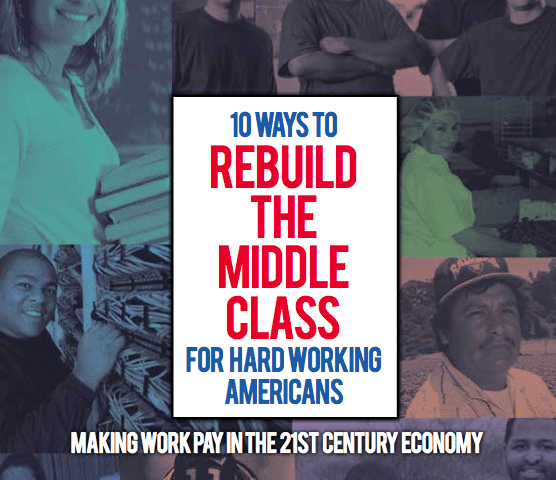
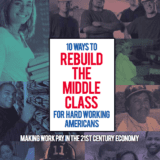
 As pundits constantly remind us, when it comes to the national elections, it’s the economy, stupid.
As pundits constantly remind us, when it comes to the national elections, it’s the economy, stupid.
But the parameters of the debate about our dire economic straits has been disappointingly narrow, leaving out some of the most pressing issues facing tens of millions of Americans.
If national leaders are serious about reviving the economic fortunes of our struggling middle class, the unemployed and the growing ranks of the working poor, they would do well to take a long, hard look at the new report, “10 Ways to Rebuild the Middle Class for Hard-Working Americans: Making Work Pay in the 21st Century.” Released today by a consortium of two dozen organizations across the country, the report is a clarion call for a set of policies that are largely off the radar screen of both major parties. This deafening silence notwithstanding, the prospect of a true economic recovery that restores the promise of broadly shared prosperity is nearly inconceivable without the adoption of most of these proposals.
» Read more about: A Prescription for Middle Class Recovery »


The 2012 State Legislature adjourned on August 29th and now hundreds of bills sit, awaiting the Governor’s signature. One of those bills, Assembly Bill 2508 by Assemblywoman Susan Bonilla (D – Concord), will call back hundreds of jobs into California’s economy.
Current state law allows state public benefit contracts, including call-center contracts, to be awarded to contractors that perform the work outside of California, and even the United States. AB 2508 would prohibit state agencies that manage public benefit programs from contracting for call center services outside the state.
The federal and state economies are recovering from the great recession and California still has a high unemployment rate. Meanwhile, though it has cut services available to out-of-work and low-wage earners by over $15 billion over the past four years, California still spends billions on public benefits to help these individuals and families prevent hunger and homelessness and be prepared with the necessary job skills for when the economy bounces back.


Workers at a major Walmart-contracted warehouse in Riverside County went on strike Wednesday morning. They are protesting what they say are unfair labor practices that they have faced on the job after months of working in hot temperatures this summer.
The employees—who do not have a recognized union—walked off their jobs during the first shift at an NFI warehouse in Mira Loma, calling, according to a statement, “for an end to retaliation and unfair labor practices.”
“When we spoke out to change terrible working conditions, workers were suspended, demoted and even fired. They spied on us and bullied us, all because we are fighting for dignity” said Limber Herrera, a warehouse worker for four years.
The strike comes one day before workers and their supporters begin a 50-mile, six-day pilgrimage from the warehouse to Downtown Los Angeles.
Workers face inadequate access to clean water, work under scorching heat that reaches well above 100 degrees,
» Read more about: Walmart-Contracted Warehouse Workers Go on Strike »


 Allowing a governor to make additional cuts to a final state budget is a fairly new development in California and governors have taken to it with verve. For the rest of the state, however, the response is, generally, “What? I thought the whole thing was over!”
Allowing a governor to make additional cuts to a final state budget is a fairly new development in California and governors have taken to it with verve. For the rest of the state, however, the response is, generally, “What? I thought the whole thing was over!”
These codas are not, however, unusual. Over the centuries, in several venues, end-of-the-piece additions have caused audiences who had already breathed a sigh of contented (or not) relief, believing a work to be beautifully, or thankfully, over, to snap to attention at the start-up of one more reprise, act, movement or chapter.
Beethoven’s Symphony No. 6 in F Major, sometimes known as the Pastoral Symphony, for example, is one of those pieces that jolts the unwary applauder in the audience by going on for five, instead of the usual four, movements. It’s embarrassing to burst into applause only to find out there’s a coda and you’re making noise all alone.
» Read more about: State Budget: It Ain't Over Till It's Over »


 I got my start in politics helping poor Mississippi sharecroppers register to vote. In those days even walking up the steps of the nearest town hall and asking to register could be answered with insults, threats of violence or worse. The required poll tax and quiz on the Constitution were designed to intimidate poor people and keep them off the voting rolls.
I got my start in politics helping poor Mississippi sharecroppers register to vote. In those days even walking up the steps of the nearest town hall and asking to register could be answered with insults, threats of violence or worse. The required poll tax and quiz on the Constitution were designed to intimidate poor people and keep them off the voting rolls.
That was a fight we won, right? Not exactly. In 2011, more than 30 states introduced legislation to once again restrict the access of regular people to the voting process. Some of these new laws’ promoters are trying to limit registration through strict voter ID requirements including possession of a government picture ID or proof of citizenship. Others aim to shorten the days and times for voting or impose strict restrictions on community organizations from registering new voters. These new laws can heavily impact both senior citizens, whose birth certificates can be hard to access and who can’t afford the cost or travel involved to attain certain documents,
» Read more about: Voter Suppression: One Man, One Picture ID? »


 Warehouse workers will embark Thursday, September 13, on a 50-mile protest march. Warehouse Workers United says the objective is “to urge Walmart to eliminate illegal and inhumane working conditions in its contracted warehouses in Southern California.”
Warehouse workers will embark Thursday, September 13, on a 50-mile protest march. Warehouse Workers United says the objective is “to urge Walmart to eliminate illegal and inhumane working conditions in its contracted warehouses in Southern California.”
The pilgrimage will take workers from Riverside to Los Angeles. Along the way they’ll be sleeping on church floors and relying on community organizations for support and meals.
The marchers will be joined daily by supporters and elected officials. Here is the march’s route map. Follow it on social media using the hashtag #WalMarch.
» Read more about: WalMarch: Warehouse Workers to March for Safe Jobs »


 (Note: The following catalog of cultural resources comes from World Wide Work and is published by the American Labor Education Center. Its authors say: “Please share this bulletin with others and encourage them to subscribe for free to World Wide Work, which they can do by going to TheWorkSite.org, [which] provides free, downloadable and adaptable materials for grassroots organizing and education. There is no cost for subscribing to the bulletin, and we never share our email list with anyone.”)
(Note: The following catalog of cultural resources comes from World Wide Work and is published by the American Labor Education Center. Its authors say: “Please share this bulletin with others and encourage them to subscribe for free to World Wide Work, which they can do by going to TheWorkSite.org, [which] provides free, downloadable and adaptable materials for grassroots organizing and education. There is no cost for subscribing to the bulletin, and we never share our email list with anyone.”)
New and worth noting…
BOOKS
The Evening Hour by Carter Sickels (Bloomsbury). This exceptional novel focuses on a young nursing home worker whose Appalachian homeland is being ravaged by coal companies. The characters are intriguing and complex, and the story is fresh and generally free of clichés.
» Read more about: Books, Films and Music: A Cultural Tool Box »
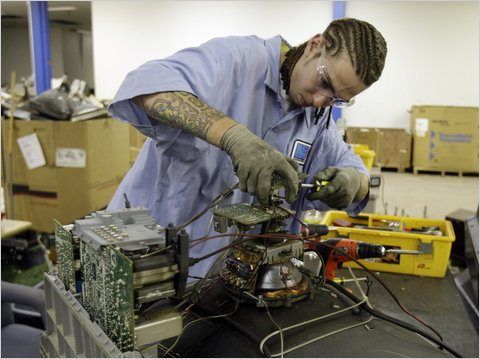
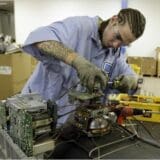
(Note: This post first appeared September 5 on Huffington Post and is republished with permission.)
You wouldn’t think that green jobs and gangs in America have much in common. But that’s before you realize that one has the power to positively change the other.
As the political rhetoric heated up last week in Tampa, many listened to hear how Mitt Romney will address the economic concerns felt by many Americans. For the past year, clashes between the one percent and those left behind have shed a new light on wealth disparity in our country. At a time when we’re expected to hit a record 66 million people living at or below the federal poverty line, our political leaders must support bold, innovative solutions that address the varied sources of poverty in our country.
The notion of job creation as a solution to [poverty] is nothing new.


 When my wife Susan and I walk down our neighborhood’s sidewalks, we often face the specter of some much younger person so focused on their cell phone, they almost run into us. Of course, we are old, so invisible. But usually they are oblivious to us because they are texting, and we avoid collisions with our fellow pedestrians because we step out of the way or interrupt these people’s concentration with a cheery “Hello.”
When my wife Susan and I walk down our neighborhood’s sidewalks, we often face the specter of some much younger person so focused on their cell phone, they almost run into us. Of course, we are old, so invisible. But usually they are oblivious to us because they are texting, and we avoid collisions with our fellow pedestrians because we step out of the way or interrupt these people’s concentration with a cheery “Hello.”
Nevertheless, it was still shocking to see that the same week Time magazine used several pages to map out our compulsive use of technological tools, The Week popped the question: Are we addicted? The answer, apparently, isYes we are.
Some 29 percent of Americans say their mobile devices are the first thing they look at in the morning and the last at night. And 68 percent acknowledge that it goes by the bed every night.
» Read more about: No Man Is an iPhone: In Search of the Wild Country »


(Editor’s Note: Thanks to the strong advocacy of the Natural Resources Defense Council and others in the RePower LA coalition, the Los Angeles Department of Water and Power has taken important steps towards becoming the greener, more efficient utility that will power the region through the next century. Earlier this summer, the LADWP Board more than doubled its investment in energy efficiency, and it recently followed that by embracing strong principles to guide future policy.)
On August 7, LADWP adopted guiding principles for the development and implementation of its energy efficiency portfolio.
The resolution commits LADWP to “aggressively promote and achieve energy efficiency across all customer segments and energy end uses as a key part of LADWP’s long-term, supply-side energy procurement strategy.”
What does this mean?
» Read more about: LADWP Doubles Down on Clean, Cheap, Local Energy »


The week’s wackiest quote, hands down, belonged to Congresswoman Yvette Clarke (D-Brooklyn), who told political comedian Stephen Colbert that blacks in her district were Dutch slaves at the time Brooklyn joined New York City in 1898. Then there was Australia’s Gina Rinehart, the planet’s richest woman, who was at it again speaking power to truth: While Rinehart is estimated to “earn” US$625 per second, she called on her country’s miners to take a pay cut. Read and weep!


There is little disagreement that consumer spending is a critical driver of American economic growth. The recession that began in 2007, while precipitated by the meltdown in the financial sector, is at root a crisis of aggregate demand. The halting recovery has been punctuated by disappointing monthly job reports and—just as important—by gloomy predictions from the Conference Board’s monthly survey of consumer confidence. Even business surveys admit (here and here) that anemic consumer demand (not “job-killing regulations”) is holding back new job creation and economic recovery.
Yet, despite worries about sagging consumer confidence and shrinking paychecks, business leaders seem unconcerned about the declining standard of living of middle-class America, or about the growing number of American families slipping into poverty. Over the last generation, wages for middle-class workers haven’t budged, while compensation for corporate executives and owners is reaching stratospheric levels.
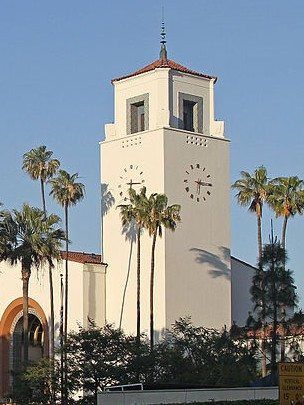

On August 29, 2012, one of the most important job creation and environmental bills in recent memory was adopted by the legislature and sent to the governor. Senate Bill 1156 was developed and introduced by Senate President pro tem Darrell Steinberg and supported by a strong majority in both houses. Steinberg built quiet momentum behind the bill starting last February, in partnership with a broad-based coalition of community, environmental, labor, smart-growth and good-government activists, with support from the counties, infill developers, non-profit housing developers and business.
Indeed, despite the fact that the new legislation builds on the mostly eradicated foundation of the old redevelopment scheme (see background here), the bill attracted surprisingly little opposition. The Howard Jarvis Taxpayers Association and the anti-union Alliance of Building Contractors (ABC) were its only formal opponents.
While SB 1156 is a comprehensive, “big picture” bill,
» Read more about: Sustainable Communities Bills Sent to Governor Brown »